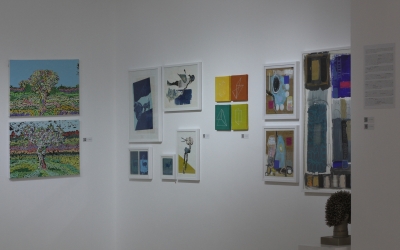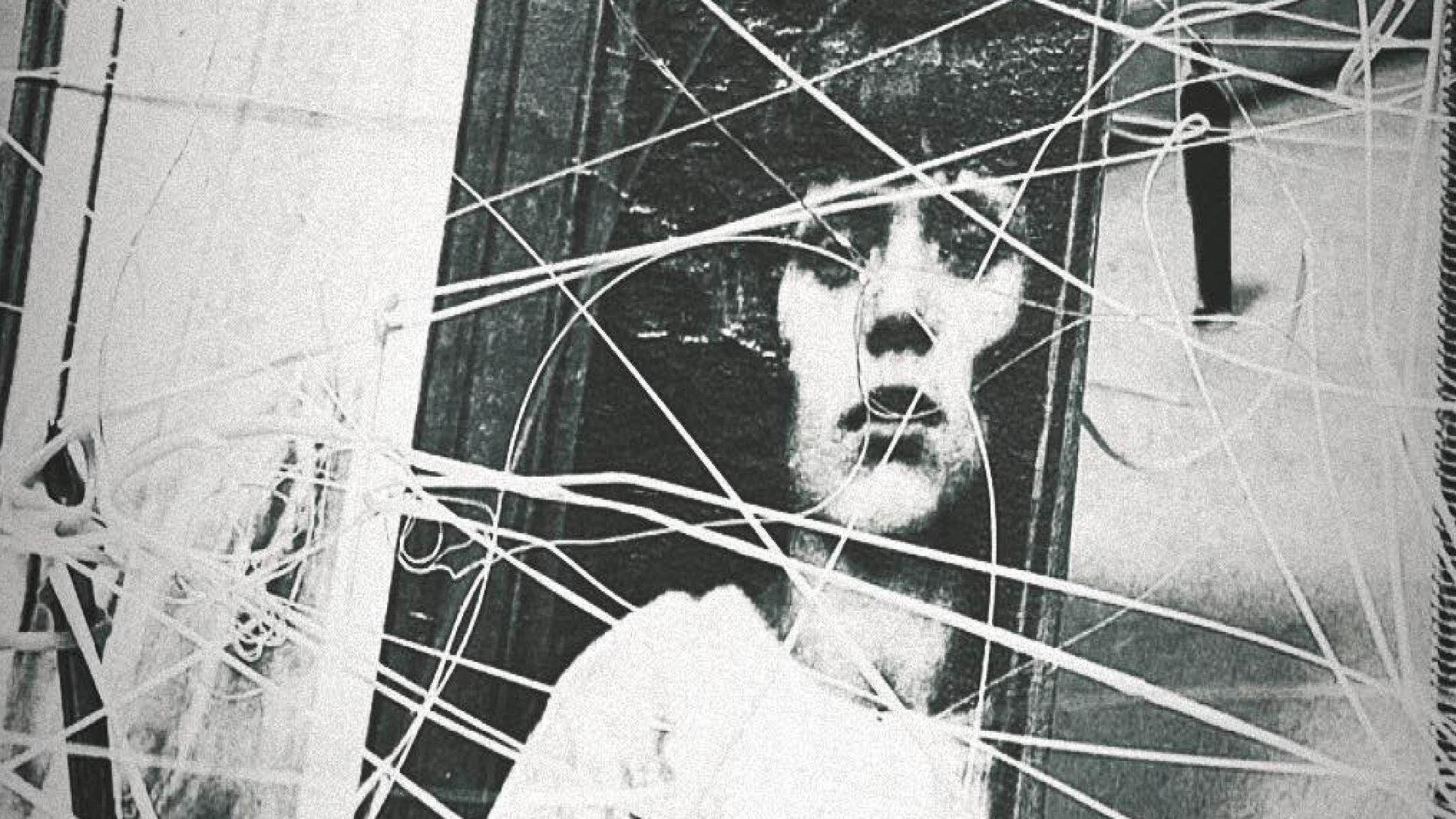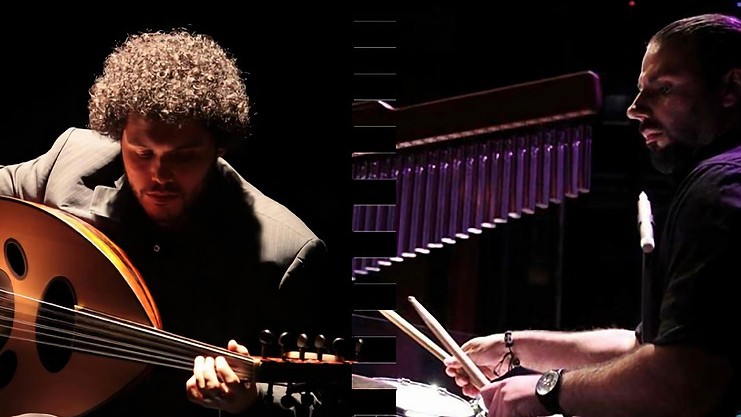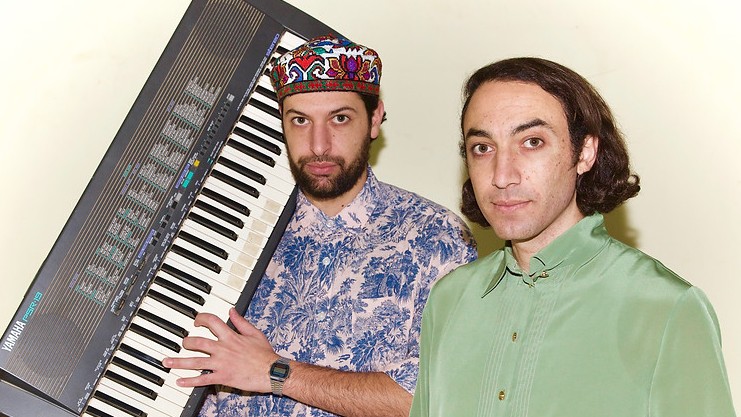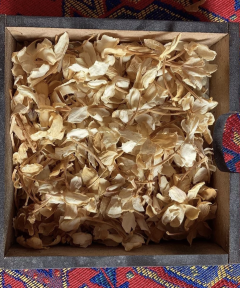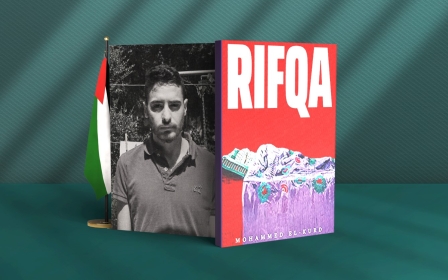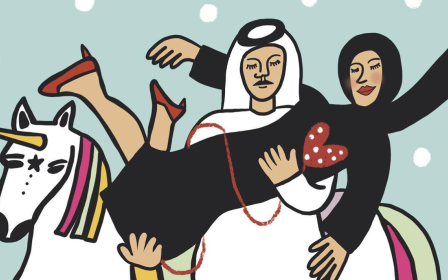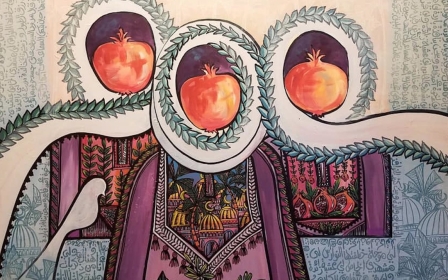Celebrating Syria: Festival aims to showcase the country's rich cultural heritage
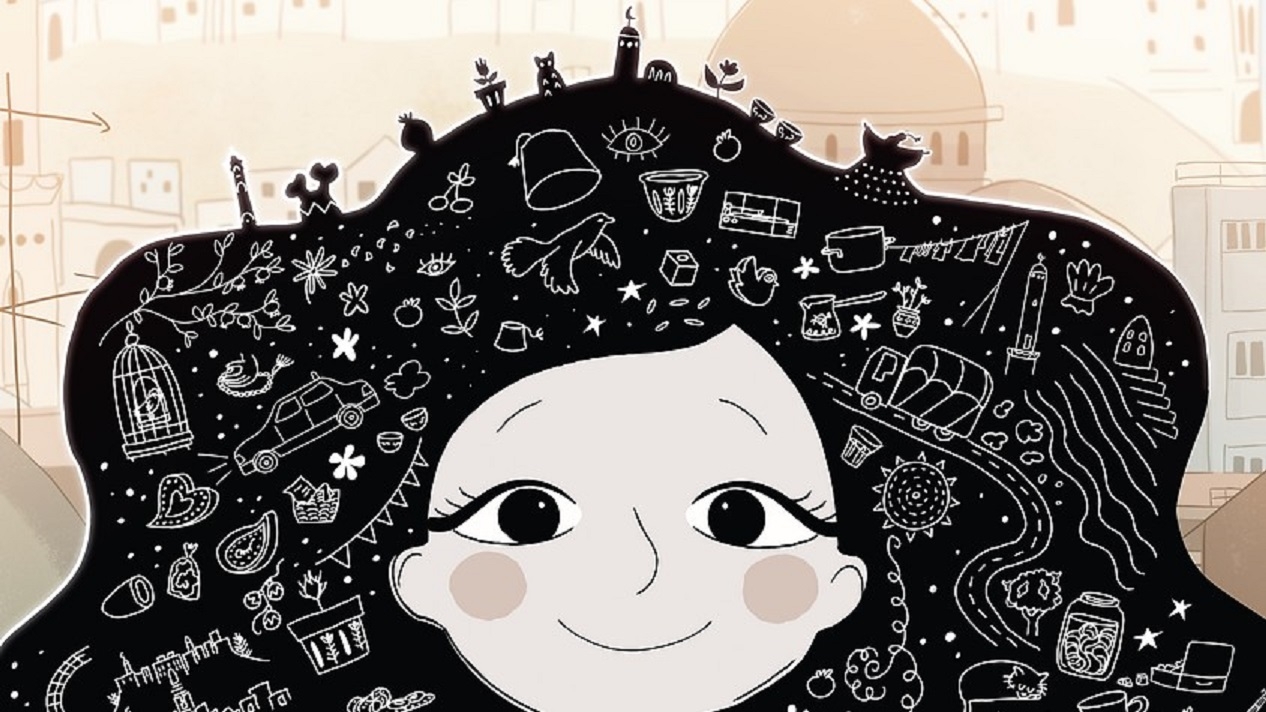
Since 2011, Syria has been a country devastated by war with at least half a million people killed and millions more fleeing.
However, organisers of the Celebrating Syria arts and culture festival are hoping to show a different side of the country, one that is aimed at highlighting the creativity of Syrian artists across the UK and further afield.
Based in the northern English city of Manchester, the exhibition which started in 2017, runs between 11 and 26 March, and revolves around the theme of masafat (Arabic for distance); a topic inspired by the social distancing measures enforced during the coronavirus pandemic, as well as the Syrian experience after the start of the 2011 war.
Syrians are well acquainted with the feeling of distance and longing; a large proportion of the country's citizens, more than a half, have been forcibly displaced or become refugees since the conflict began.
By showcasing the art and music created by Syrians, the festival intends to reduce the distances between Syrians in diaspora, bringing them together and allowing them to bond over their common culture and heritage.
New MEE newsletter: Jerusalem Dispatch
Sign up to get the latest insights and analysis on Israel-Palestine, alongside Turkey Unpacked and other MEE newsletters
'Searching for creativity'
The 2022 version of the festival is a hybrid in-person and online event, and follows a 2021 edition that was held entirely online due to the pandemic.
In a welcome twist of fate for the organisers, the introduction of an online element meant they were able to draw participants from around the world in a way they would not have been able to if the exhibition was purely in-person.
That flexibility is welcome for Syrians, who are living across the world as a result of the conflict.
“We are not producing new arts in the festival, we are searching for creativity and celebrating it in our exile,” Abir Tobji, one of the co-founders of the festival, told Middle East Eye.
One of the key purposes behind the festival, according to Tobji, is to carve out a new image for Syria, one free of its association with war and suffering.
She explained that much of what people think about Syria is shaped by the news, which has largely neglected the country's rich cultural diversity and its arts.
Another organiser, Haytham Alhamwi, emphasised that point.
"The hope of the festival, and the aim of repeating it every year is to change the way Syria is associated with sadness, sorrow, misery, refugees and war," he said.
"We want to associate Syria with something that it deserves, which is its authenticity and heritage, its arts, culture and happiness."
In an effort to shed light on the country's rich cultural heritage, the festival is putting together 20 events, including workshops, an art exhibition, theatre performances, music, panel discussions and film screenings.
Untold stories
One of the main features of the 2022 event is the art exhibition, which includes work by artists including Khalda Alkhmri, Leena Sahloul, Manya Alkhmri and Tarek Tuma.
Sahloul’s contribution features a series of five distinctive pieces, drawing the viewer's attention to either the subject's eyes or other facial features.
In one of her pieces on display at the festival, called The Oppressed, a young girl stares out of a window, with a solemn-looking expression.
Sahloul explained that such images were a way of provoking the notion the one should look beyond themselves, inviting people to search harder for untold and unheard stories.
"Being Syrian-British, I am part of two worlds: the free and the oppressed," she said.
"Before the genocide in Syria began, I was too young to understand the oppression in Syria... One may not look oppressed in our society through their home window, but everything inside them wants to escape and the yearning for freedom eventually prevails."
The festival also has live musical perfomances, featuring singer Omran Zain, who combines his training in classical Arabic singing with contemporary jazz.
Playing alongside Zain are the oud musician Kareem Samara and the percussionist Walid Zelo.
Other notable performers at the festival include brothers Hasan and Rami Nakhleh, who come from the Golan Heights and whose songs pay homage to 1980s-style beats.
Their album Migrant Birds fuses classical Arabic styles with modern instruments, such as electric guitars, creating a unique sound that weaves together the traditional and the modern.
A strong theme throughout the brothers' album is the feeling of statelessness that comes with being born in the occupied Golan Heights.
Organisers have also set up workshops on traditional forms of Syrian dance, such as the dabke, a native Levantine folk dance, performed in a circle or straight line during weddings or other celebrations.
Film screenings include the movie Dounia, which tells the story of a Syrian child, whose idlyllic life with her grandparents in Aleppo is uprooted by war. The wisdom of her grandparents helps the young girl navigate her new life in exile.
Memories in pockets
Besides the exhibitions, performances and film screenings, the festival also includes panel discussions on topics as diverse as war writing, history and the issue of displacement,
Rasha Youssef, a refugee resettlement worker, will be a key speaker on the On Remembering and Forgetting panel, sharing her experiences over the past decade.
After starting her career as an archaeologist, Youssef decided she wanted to dedicate her time to changing the stereotypical perception of what a refugee is.
As part of her efforts, she created the Syrian Time Capsule project, which is a collection of stories about items that have travelled thousands of miles, often in the pockets of refugees.
"As forced migrants and refugees, we have nothing left from our homes but the few memories that we keep," she said.
"I believe that we carry our memories in our pockets, bags, walls, bodies and souls."
One of the pieces included in the capsule project is called the Jasmine Thief, which was put together by someone who picked jasmine flowers before they left Syria, as a memento of the country, allowing them to look back and connect with their past.
Another item, entitled Mug in Dinghy, is inscribed with well wishes for the refugee before they left the country.
"I wanted to discover... how people choose to represent themselves through the physical objects that they brought with them from a place that they once called home," Youssef said.
Celebrating Syria is being held in Manchester until 26 March and a full programme is available here.
Editor's note (15/03/2022): This article has been amended to remove a quote incorrectly attributed to Leena Sahloul and to clarify the correct number of Syrians forcibly displaced due to conflict.
Middle East Eye delivers independent and unrivalled coverage and analysis of the Middle East, North Africa and beyond. To learn more about republishing this content and the associated fees, please fill out this form. More about MEE can be found here.


